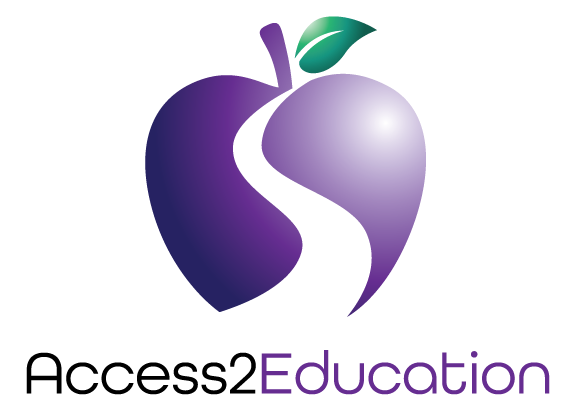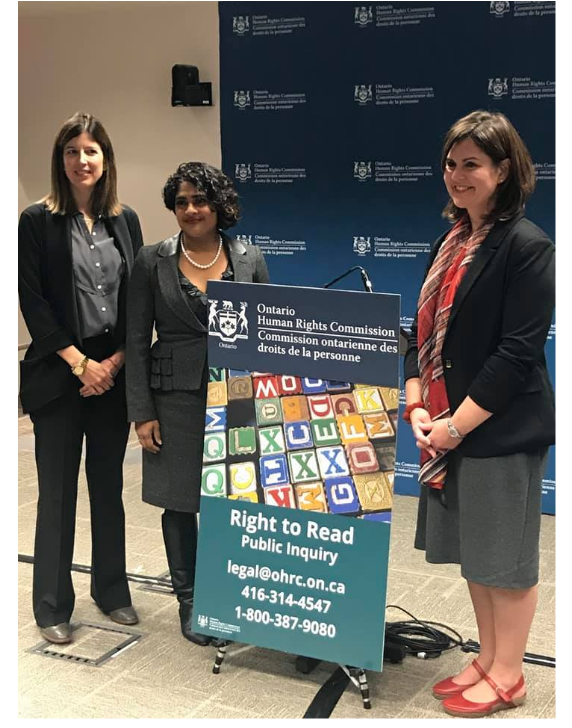Decoding Dyslexia - An Interview with Lark Baker
October is Dyslexia Awareness Month. There is a movement a foot by parents to help support students with learning differences. Dyslexia is often, in the school system, seen as a language learning disability. It is however, much more then that. In this weeks post an interview with Lark Baker, president of the parent lead group Decoding Dyslexia.
What is Dyslexia?
The International Dyslexia Association defines dyslexia as
“Dyslexia is a specific learning disability that is neurobiological in origin. It is characterized by difficulties with accurate and/or fluent word recognition and by poor spelling and decoding abilities. These difficulties typically result from a deficit in the phonological component of language that is often unexpected in relation to other cognitive abilities and the provision of effective classroom instruction. Secondary consequences may include problems in reading comprehension and reduced reading experience that can impede growth of vocabulary and background knowledge.”
https://www.idaontario.com/about-dyslexia/.
As a person with dyslexia I struggled to read and write as a child. With support from my parents and teachers I was able to learn strategies to help support my learning. I was provided with direct teaching and remidation in my understanding of phonological awareness so that learning was less of struggle.
Since grade 2 an Individual Education Plan was put in place and I was in a small class placement till I was 14.
Now as a mother of two boys, both with dyslexia and a special education teacher I understand the need for direct teaching of basic reading skills and providing support. In this weeks interview Lark Baker talks about the work the Decoding Dyslexia is doing to support students and families.
Dyslexia can sometimes feel like you can’t get it. With help and support anything is possible.
Lark could you tell us a little bit about Decoding Dyslexia Ontario and what it’s mandate is?
Answer: Decoding Dyslexia is a parent-led, grassroots movement that started in the United States. Annette Sang founded Decoding Dyslexia Ontario with a small group of parents in 2015 as a way to connect with other parents in the province.
It didn’t take long before they were flooded with stories from other families who were experiencing the same challenges in the Ontario public school system. Today, we reach more than 20,000 people every week on our Facebook page.
Dyslexia is the most common learning disability, affecting-15% of the population regardless of sex, age, race or socio-economic status. In Ontario, there are 2 to 5 children with dyslexia in every classroom. Dyslexia is a neurologically-based learning disability, often inherited, that makes it difficult to read, write and spell.
Dyslexia is not related to intelligence or the desire to learn. Students with dyslexia in Ontario face many systemic barriers to learning in our education system, such as lack of awareness, lack of access to timely assessments, effective reading instruction and accommodations.
Decoding Dyslexia Ontario works to raise dyslexia awareness, empower families to support their children who are dyslexic, and communicate evidence-based practices regarding the (i) identification; (ii) the remediation, and (iii) the support for students with dyslexia.We specifically advocate for early intervention and effective, evidence based reading instruction so that all children learn to read.
Why did you want to get involved with Decoding Dyslexia?
Answer: As a parent whose child was diagnosed with a Specific Learning Disability in Reading Phonemics (dyslexia), and a special education teacher, I was surprised to find out that schools aren’t providing the most effective support to children with dyslexia, nor are they using that terminology. As a parent I struggled to help my son to ‘learn to read’. It was especially frustrating as I was an educator and knew something was wrong.
His school, while empathetic, was unable to offer any real type of remediation. I was asked about finding him private tutoring, which we did, but it was not an effective way of teaching reading. I had to get my son privately tested and then try to navigate finding him appropriate remediation. Even then, finding a structured literacy/Orton Gillingham tutor is not easy.
The science of the reading brain indicates that appropriate reading instruction and remediation works best – takes less time and will produce better results – when provided early, before the end of Grade 1. However, across Ontario, most children are diagnosed with a SLD/dyslexia after the third grade and very often are not provided with the scientific, evidence-based reading instruction (called “structured literacy”) they need to become proficient readers and successful learners in the classroom.
We need to fix the “wait to fail model” that affects children with dyslexia; this is not acceptable in a province that guarantees the right to an education for all. I did not want any child or family to go through the needless struggle that mine did.
You help support families whose children have dyslexia. How do you do that?
Answer: We are all volunteers: parents helping parents. We provide evidence-based information and support to parents through our website, social media channels, community meetings and networking with other parent/literacy/education groups. Every week, parents and students reach out to us with heart-breaking stories.
Often they come to us looking for specific information about how to get a diagnosis and what to do after they get a diagnosis. They want to know what supports are available at school (the answer is: not much), and other times they simply want to check-in with other parents so they don’t feel so alone on their journey.
In order to ensure we provide the most up-to-date and evidence-based information, we work with other dyslexia organization in Canada and internationally, such as the Ontario Branch of the International Dyslexia Association Ontario Branch (IDA ON). We refer parents directly to their list of accredited professionals. We also keep on top of the latest research and scientific articles about dyslexia, and what instruction works best.
Looking longer term, we advocate for more dyslexia awareness and supports in public schools by sharing information on social media, organizing and attending community meetings, doing media interviews, and marking International Dyslexia Awareness Month (October) every year.
We meet with officials in the Ministry of Education, as well as MPPs, and education-related organizations. For example, we recently spoke at the announcement of the Right To Read inquiry by the Ontario Human Rights Commission; this is a year-long inquiry into human rights issues related to students with reading disabilities in the public education system. We encourage parents, students and educators to share their stories with the Commission.
Can you tell me about the Right To Read inquiry?
Answer: The Right To Read inquiry is basically a response to an investigation and research into the following alarming statistic that (according to recent EQAO results), “..more than one-quarter of Grade 3 students, and 53% of Grade 3 students with special education needs, did not meet the provincial standard for reading.” http://www.ohrc.on.ca/en/news_centre/ohrc-launches-right-read-public-inquiry
This really is shocking if you think about it. We know there is a better way to teach reading FOR ALL STUDENTS that is based on science. From my point of view and experience, students with dyslexia and other reading disabilities are not getting proper remediation to learn to read. I hope that at the end of the inquiry recommendations are made which result in a curriculum change.
When the new Language curriculum came out in Ontario in 2006, the UK implemented early screeners and phonics checks. They based their curriculum on science at the recommendations of the ‘Rose Report’ and have outscored Canada on the Progress in International Reading Literacy Study (PIRLS) data ever since.
Lark Barker, President, Decoding Dyslexia Ontario (DDON)
Renu Mandhane, Chief Commissioner, Ontario Human Rights Commission
Alicia Craig Smith, President-elect, International Dyslexia Association Ontario (IDA ON)
If you could tell a parent who’s just discovered their child is dyslexic what would you tell them?
Answer: Early intervention is key. The sooner your child can get support at school or with a tutor in your community who specializes in structured literacy, the better.
Unfortunately, we know that hiring a tutor can be out of reach for many families. This is why we advocate for more support in the public education system. We often refer families to IDA Ontario’s webpage where they have a compiled listing of accredited tutors. Seek out good information. There are many wonderful online resources for parents and students, and we’ve compiled a list of our favorites here: Decoding Dyslexia Ontario.
I also suggest that parents look out for signs that their child is suffering from anxiety or another mental health issues; many dyslexic children need some support to help boost their confidence and self-advocacy skills. One suggestion is to get a book about dyslexia that you can read together to develop a better understanding of dyslexia: we’ve put together a list of recommended books (many which you can get from the library).
Finally, I encourage parents to remain positive. With help, their child will be able to overcome many of the challenges they face. With the right supports in place, dyslexic children will learn to read and be successful at school and in life. If you’re struggling, reach out for help -- whether it be a trusted teacher, friend, or another parent in the dyslexia community.
Do you have any advice for educators out there who are supporting students with dyslexia?
Answer: Get informed and never stop asking questions. It is important that educators understand that with proper remediation dyslexic students can learn to read & read well. Students need access to structured literacy or an Orton Gillingham approach to teaching reading.
I suggest teachers ask their school boards to send them for the Orton Gillingham Classroom Educators Training as a first step. There are a few people in the GTA who give the course, while there is also access to it online.
For more information about Decoding Dyslexia Ontario:
Website - https://www.decodingdyslexiaon.org/
Facebook - DecodingDyslexiaOntario
Twitter - @dyslexiaOn
Email - decodingdyslexiaon@gmail.com
As a parent with two children with dyslexia being able to find resources that give accurate resources has been key to supporting my family and children. Ask questions and seek out information from agencies who understand your child’s needs. Remember to ask questions and seek support when you need it!
Have you gotten your FREE IEP Binder Organizer yet? Join our mailing list to get yours and help keep your child’s school documentation in order.
Follow me on Instagram @access2educationtoronto











June can be a scary time of year for those who struggle with transitions. Looking at BIG T Transitions and little t transition can help you build a transition to ensures the success of your child.